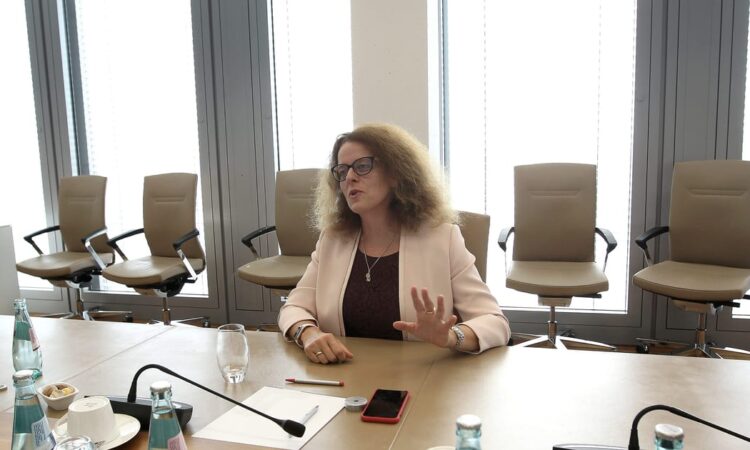
The European Central Bank will increase interest rates for as long as necessary as rates need to reach “restrictive territory” to tame inflation, Member of the ECB Executive Board Isabel Schnabel said.
“We are doing whatever is necessary to bring inflation back to our medium-term target” of 2 percent, she told German newspaper Frankfurter Allgemeine Zeitung in a December 16 interview that was posted on the ECB website on Saturday. A tight monetary policy is needed to reach this goal, she said in the interview, which came one day after the ECB lifted interest rates by half a percentage point.
“We clearly have to reach an interest rate that is high enough to bring inflation back down to 2 percent,” she said.
“According to our assessment, this interest rate lies in restrictive territory — that is, above the neutral interest rate — even if the exact level is yet unknown,” she said.
The ECB “underestimated the persistence of inflation and initially did not take the signs of higher inflation seriously enough,” Schnabel said. “There was a concern that premature action by monetary policy might unnecessarily push the economy into another recession.”
Looking ahead, she said that, with further rate hikes in store, reaching a consensus on the next steps “will certainly not get any easier in the future.” The ECB expects inflation to remain “notably” above 2 percent “over an extended period.”
The ECB raised interest rates by a cumulative 2 percent between July and October, which constitutes the fastest tightening effort on record.
Schnabel said that “the danger of overreacting continues to be limited, as real interest rates are still very low.”
The most recent hikes were criticized by Italy, and Schnabel said that “increasing pushback” to further rate increases are likely.
“Governments generally don’t like interest rate hikes very much,” she said. “So we can expect increasing pushback and we need to withstand it. That’s exactly why central banks are independent.”





